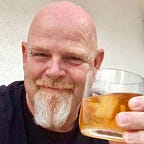Passion and Mission with Father Greg Boyle
In 1984, a newly ordained Jesuit Priest named Father Greg Boyle arrived at Dolores Mission Parish in Boyle Heights, a predominantly Hispanic neighborhood in Los Angeles.
For a new Priest, it was the proverbial deep-end assignment. Father Boyle talked to Steve Sims for his Art of Making Things Happen podcast.
The Decade of Slaughter
The 1980’s were a traumatic decade in Los Angeles. Crack cocaine, traditional gang culture, and new, high-powered, automatic weapons combined to create a bloodbath. In Father Greg’s parish, eight gangs competed for control. By his own count, Father Greg buried 226 kids killed by gang violence.
What would one unarmed man do to stop this?
Small Steps to Peace
Father Greg began with small steps towards winning trust and giving kids alternatives to gang life. He sought out schools who would take kids who’d been expelled elsewhere, keeping them busy when they could be banging. He visited gang members in hospital, developing rapport and winning small concessions, such as “Please don’t shoot into houses”.
Eventually, he managed, through what he calls “shuttle diplomacy”, to broker truces between the eight gangs in the area. This would pay off in riots following the trial of four LAPD officers in the beating of Rodney King in 1992. The Parish stayed quiet, and people started noticing the efforts of Father Greg.
His secret? Father Greg states it was all about listening, not talking. “It’s not about them listening to me. It’s about me, listening to them.”
A Crucial Intervention
In the wake of the 1992 Riots, help came from an unlikely source: Hollywood producer Ray Stark. With Ray’s help, Father Greg was able to take over a vacant bakery and begin “Homeboy Bakery”. “Homeboy Tortillas” and “Homeboy Silkscreen” soon followed suit. Homeboy Industries was born.
Resistance Was Stiff
Feelings were raw in the aftermath of the 1992 Riots. A war mentality gripped LA, and LAPD officers saw themselves on the frontline. As Father Greg recalls, some sent threatening messages. Others suspected him as a gang sympathizer.
But Father Greg was conscious of the need not to give the gangs “oxygen”. He shifted efforts from gang summits, to trying to bring members out of the life altogether, concluding that 98% of members really wanted out. The other 2% were a mental health issue. He continued with his efforts.
A Growing Concern
Today, Homeboy Industries operates the following business ventures:
-Bakery
-Homegirl Café
-Homeboy Merch
-Diner at City Hall
-Grocery
-Silkscreen/Embroidery
-Homegirl Catering
-Homeboy Electronics Recycling
And, these enterprises help support the following community initiatives:
-Tattoo Removal
-Workforce Development
-Educational Services
-Case Management
-Legal Services
-Mental Health Services
-Solar Energy (It’s California, after all)
Change, Deeper Than Skin
One of the greatest efforts for which Homeboy Industries receives recognition is its program of tattoo removal.
Most gangs in the LA area use elaborate tattoos to identify members to each other and their enemies. Sometimes, these tattoos creep up the neck and on to the face. When a gang member decides to leave the life, these tattoos can render legitimate employment practically impossible, leaving the wearer permanently scary-looking.
Father Greg tells of a former gang member who wanted to remove a tattoo emblazoned on his chest. Instructed to just leave his shirt on, the man replied “But my son will see it.”
Obviously, for a lot of former gang members, tattoo removal is more than just about getting a job. It’s about changing their identity.
Love, But Tough Love
Father Greg’s doors are open to all, but there are rules. Drug testing is mandatory. If you don’t want to go to rehab, you’re welcome to come back…when you’re ready to get clean.
Some previous opponents are re-evaluating their approach to Father Greg and Homeboy Industries. LAPD recruits now do a visit to Homeboy as part of their Police Academy training.
A $20,000,000 Annual Operation
Homeboy Industries now generates $10,000,000 annually in proceeds, but the programs it supports, and it’s overhead, requires $20,000,000 annually. Father Greg is open about always being on the lookout for that big “transformational check”, as he calls it.
When one considers the cost of gang violence to the City of Los Angeles, it’s no stretch to consider a program that puts former bitter rivals working next to one another, a good investment.
To hear more from Father Greg Boyle
Website: Homeboy Industries
How you can help: Donate
To listen to this podcast: Father Greg Boyle
To subscribe to Steve Sims, “The Art of Making Things Happen — Podcast”
